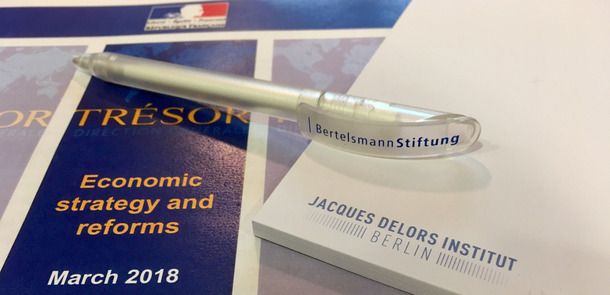The financial and economic crisis has laid bare serious structural flaws in the European Union. To address these, Europeans need to answer some fundamental questions. Do we need more Europe or less? And on what terms? In which policy areas? Opinions abound, but we are after the facts.
As a result of the euro crisis, the debate over the EU’s powers has flared up more intensely than ever before. Critics of the EU say that Brussels already has far too much power. A supposed frenzy of regulation has to be brought under control and powers repatriated from the EU to member states. By contrast, committed supporters of the integration project feel that the reason why management of the euro crisis has been inadequate so far is that the EU has too little room to maneuver to withstand international competition, while at the same time providing security and prosperity for EU citizens.
Power is not an end in itself, rather in democracies it is conferred temporarily to serve the common good. Therefore, it is possible to verify which side is right in this debate about the future of the EU and this should be done urgently, so that rising anti-European populism can be countered with well-founded arguments. So the crucial question is: who is in the best position today to provide sustainable growth, social justice and security – the EU or the individual member states?
Given that in politics, efficiency alone is never enough, and legitimacy is always central, our second question is: who wants what and why? a) What do the political elites want and why? b) What do the European citizens want and why? Therefore, we set up three empirically-based models: one model of the optimal division of powers; one of the division preferred by the “political elites” and one of that preferred by “the European citizens”. These models become really interesting once they are compared: where do they overlap? Where are they in conflict?
For both lines of enquiry and for the final synthesis, an expert panel will be convened, which will provide ongoing support in the form of a peer review. Thus we intend to develop concepts and arguments for reorganizing division of responsibilities in the EU, creating a division which encourages politicians to make decisions, including unpopular decisions. The policy recommendations developed here could prove to have particular political relevance in the negotiations on EU treaty reform at the next European Convention, which can be expected to take place in the next few years.




